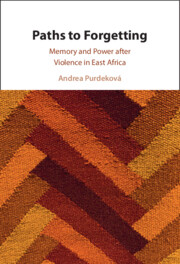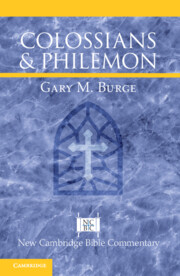Refine search
Actions for selected content:
3410549 results

Market Regulation and Private Law
- The Quest for Reconciliation in European Private Law
- Coming soon
-
- Expected online publication date:
- April 2026
- Print publication:
- 31 March 2026
-
- Book
- Export citation

The Cambridge Companion to Classics and Race
- Coming soon
-
- Expected online publication date:
- April 2026
- Print publication:
- 30 April 2026
-
- Book
- Export citation

Paths to Forgetting
- Memory and Power after Violence in East Africa
- Coming soon
-
- Expected online publication date:
- April 2026
- Print publication:
- 31 May 2026
-
- Book
- Export citation

International Law
- Coming soon
-
- Expected online publication date:
- April 2026
- Print publication:
- 30 April 2026
-
- Textbook
- Export citation

Disability and the Gothic
- The Nineteenth Century
- Coming soon
-
- Expected online publication date:
- April 2026
- Print publication:
- 31 March 2026
-
- Element
- Export citation

Microstructural Rheology of Complex Fluids
- Coming soon
-
- Expected online publication date:
- April 2026
- Print publication:
- 30 April 2026
-
- Book
- Export citation

Dualities in Physics
- Coming soon
-
- Expected online publication date:
- April 2026
- Print publication:
- 30 April 2026
-
- Element
- Export citation

Oncologic Emergency Medicine
- Clinical Cases Illustrating Key Concepts
- Coming soon
-
- Expected online publication date:
- April 2026
- Print publication:
- 31 March 2026
-
- Book
- Export citation
Engineering Dynamics
- Coming soon
-
- Expected online publication date:
- April 2026
- Print publication:
- 30 April 2026
-
- Textbook
- Export citation

Thinking Traumatic Histories
- Coming soon
-
- Expected online publication date:
- April 2026
- Print publication:
- 30 April 2026
-
- Element
- Export citation

Ethical and Clinical Complexities in the Treatment of Schizophrenia
- Liberty or Life
- Coming soon
-
- Expected online publication date:
- April 2026
- Print publication:
- 30 April 2026
-
- Book
- Export citation

The Cambridge Handbook for the Anthropology of Death
- Coming soon
-
- Expected online publication date:
- April 2026
- Print publication:
- 30 April 2026
-
- Book
- Export citation

Ancient Persian
- A Linguistic History
- Coming soon
-
- Expected online publication date:
- April 2026
- Print publication:
- 30 April 2026
-
- Book
- Export citation

Organizational Design
- A Step-by-Step Approach
- Coming soon
-
- Expected online publication date:
- April 2026
- Print publication:
- 30 April 2026
-
- Textbook
- Export citation

The Subura of Rome
- Landscape and Ideology from the Iron Age to the Early Middle Ages
- Coming soon
-
- Expected online publication date:
- April 2026
- Print publication:
- 30 April 2026
-
- Book
- Export citation

Context-Sensitivity in Language
- A Logical Analysis
- Coming soon
-
- Expected online publication date:
- April 2026
- Print publication:
- 30 April 2026
-
- Book
- Export citation

Bethe Ansatz
- Coming soon
-
- Expected online publication date:
- April 2026
- Print publication:
- 30 April 2026
-
- Book
- Export citation

National Security and International Economic Law
- Restoring Balance
- Coming soon
-
- Expected online publication date:
- April 2026
- Print publication:
- 31 March 2026
-
- Book
- Export citation

Before Recognition
- How the Politics of Religion shaped the International Order
- Coming soon
-
- Expected online publication date:
- April 2026
- Print publication:
- 30 April 2026
-
- Book
- Export citation

Colossians and Philemon
- Coming soon
-
- Expected online publication date:
- April 2026
- Print publication:
- 30 April 2026
-
- Book
- Export citation
